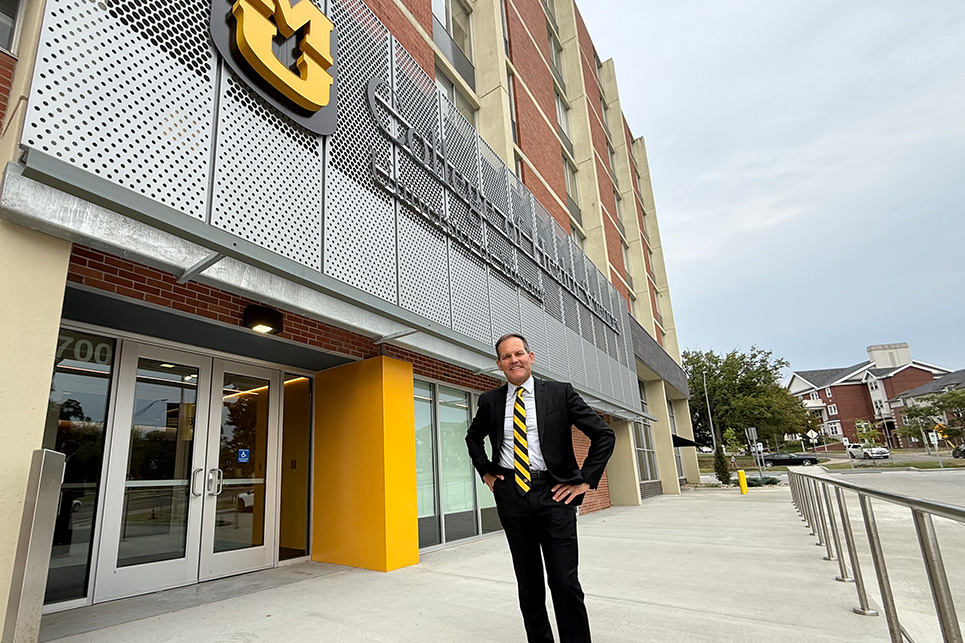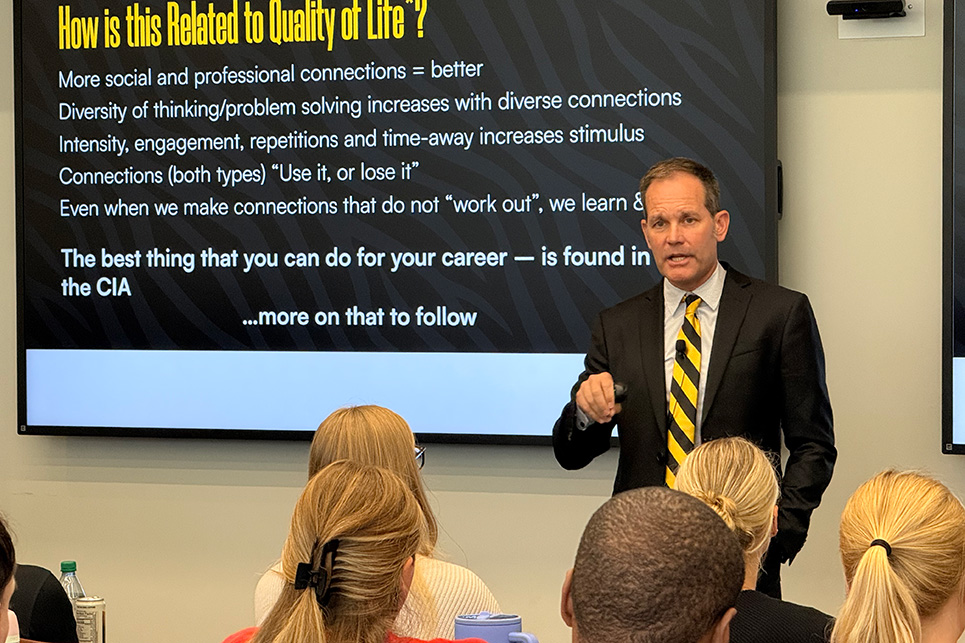Sep. 25, 2025

Story by Ryan Gauthier, rjgauthier@health.missouri.edu
When Mike Studer recently traveled to the University of Missouri, it was more than a visit to campus — it was a return to places that profoundly shaped his life.
A 1991 graduate of the Department of Physical Therapy, Studer returned to Mizzou on Sept. 5 to speak with physical therapy students as the department’s inaugural distinguished alumni lecture. The visit provided countless moments for Mike and his wife, Diane, to reflect on their journey from Mizzou to Oregon and now Las Vegas.
“I see the building where I took my first math class, and I see where my wife and I met,” Studer said. “All of those things come rushing back. And it’s just nothing but love for the campus and appreciation for what I received. And I didn’t know that I was getting that when I was here.”
Some of his most formative memories revolved around his education. Studer distinctly recalled receiving instruction from Drs. Gerald Browning and Marilyn Sanford on how to be a compassionate health care provider. He said he’ll also never forget the “formidable” experience of opening a human body in the med school’s cadaver lab and the gratitude he felt to the donors.
Beyond academics, Studer cherishes memories of being surrounded by a cohort of people with similar aspirations and cheering on the Tigers as a member of The Antlers.
“There’s so much positivity to being surrounded by people that have common goals as you toward a common large goal of amassing this knowledge curve,” he said. “If you can imagine a flock of birds where all of them are of different species flying together — it’s a bit like that.”
Over the decades since graduating from Mizzou, Studer has become a nationally recognized leader in his field. He is a Catherine Worthingham Fellow of the American Physical Therapy Association, the highest honor in the profession. Studer said the honor confirmed his intent to be a well-rounded professional who dedicated himself to clinical, academic, research and volunteer work.

During his lecture, Studer shared advice for students on building a successful career. He spoke about his own experiences as an employer and encouraged students to work in environments that allow them to provide care that feels healthy and enables them to become the best version of themselves.
Beyond his clinical work, Studer is also the author of a book, “The Brain That Chooses Itself.” Studer said he began writing as a way to “learn how to age in the healthiest way possible.” What started as a three-hour lecture evolved into a 70,000-word book he wrote from his treadmill desk.
One of the core messages of the book is the power of each patient’s beliefs. He cited the work of Stanford psychologist Alia Crum, who found that a person’s belief, built on their choices, can have a physiological effect on the body. Studer hopes the book empowers everyday people as well as medical professionals to increase healthspans and lifespans.
Amid the flood of memories from his time at Mizzou, Studer reflected on how the university has changed over the decades. He said he appreciated the Donald Reynolds Alumni Center and the amount of infrastructure on campus dedicated to alumni, noting the importance of alumni not feeling forgotten with time. Despite these changes, he said the one constant has been the quality of the people who make Mizzou such a special place.
“We have changed the time in the history of the world, we’ve changed the infrastructure of the buildings and we’ve changed the cohort from 40-some to 60-some,” Studer said. “But the caliber of people — the giving, the resonating, the compassionate people — that has not changed a bit. We still have that same high pedigree of people here at Mizzou.”